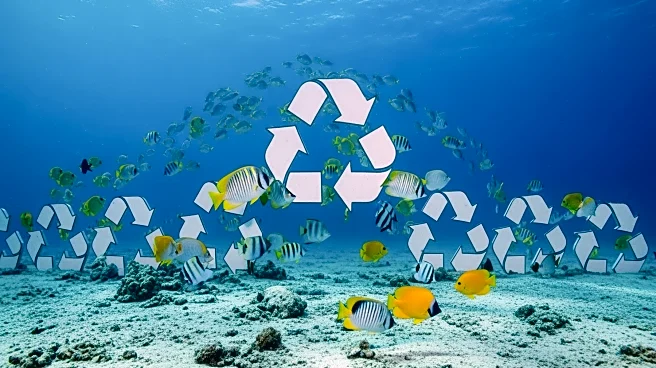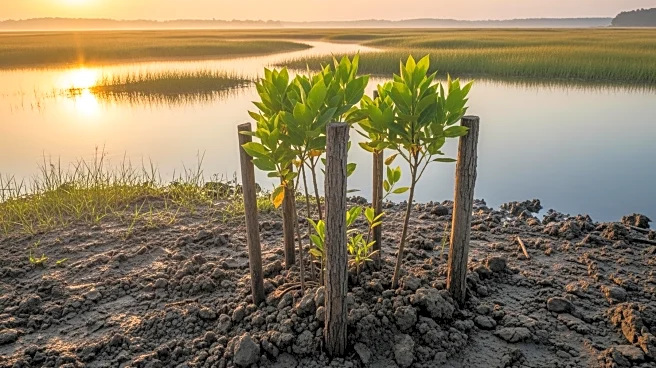What's Happening?
Researchers at the Norwegian University of Science and Technology (NTNU) are exploring innovative solutions to address the growing issue of marine plastic pollution. The team, led by PhD research fellow
Natalya Amirova, is focusing on changing the production and consumption patterns of plastic to prevent pollution at its source. The research highlights the limitations of current measures, which primarily focus on cleanup and recycling, and suggests a shift towards a circular economy and ocean stewardship. The study reviewed over 50 measures implemented in Norway, identifying only a few that could lead to significant change, such as the municipal network KIMO and the Government’s strategy for a circular economy.
Why It's Important?
The significance of this research lies in its potential to influence global strategies for reducing marine plastic pollution. By advocating for systemic changes in how plastic is produced and consumed, the study challenges the traditional reliance on cleanup efforts. This approach could lead to more sustainable practices that prioritize environmental health over economic gains. The findings emphasize the need for pro-social and pro-ecological values in decision-making, which could shift societal norms and reduce the environmental impact of plastic waste. If successful, these strategies could serve as a model for other countries facing similar challenges.
What's Next?
The researchers suggest implementing clear goals and timelines for reducing plastic waste and increasing support for grassroots initiatives. They propose replacing economic indicators with measures of ocean health to assess progress. Additionally, promoting less materialistic societies and supporting local 'zero waste' businesses could further reduce plastic consumption. These steps require collaboration between policymakers, businesses, and communities to foster a cultural shift towards sustainability. The study's recommendations could influence future policies and inspire international efforts to tackle marine plastic pollution more effectively.
Beyond the Headlines
The research highlights the ethical and cultural dimensions of marine plastic pollution, emphasizing the need for a shift in societal values. By focusing on the intrinsic value of the ocean, the study challenges the perception of the ocean as merely an economic resource. This perspective encourages a more holistic view of environmental stewardship, which could lead to long-term changes in how societies interact with natural resources. The study also underscores the role of media and advertising in shaping public attitudes towards consumption and environmental responsibility.









